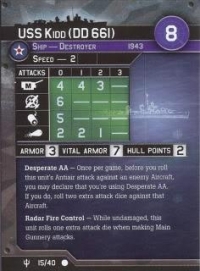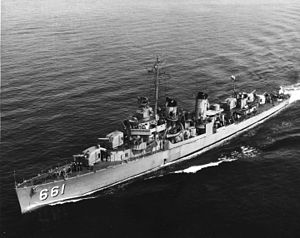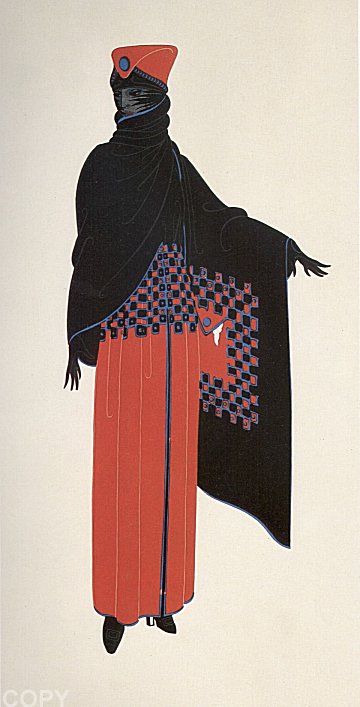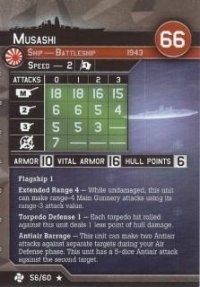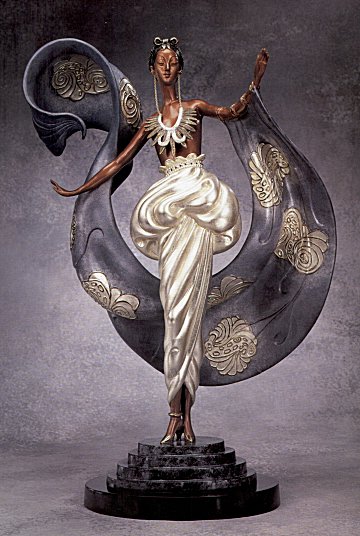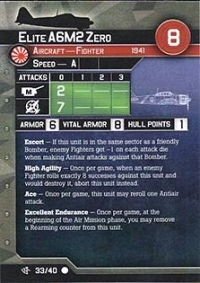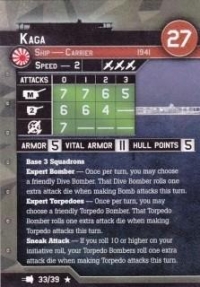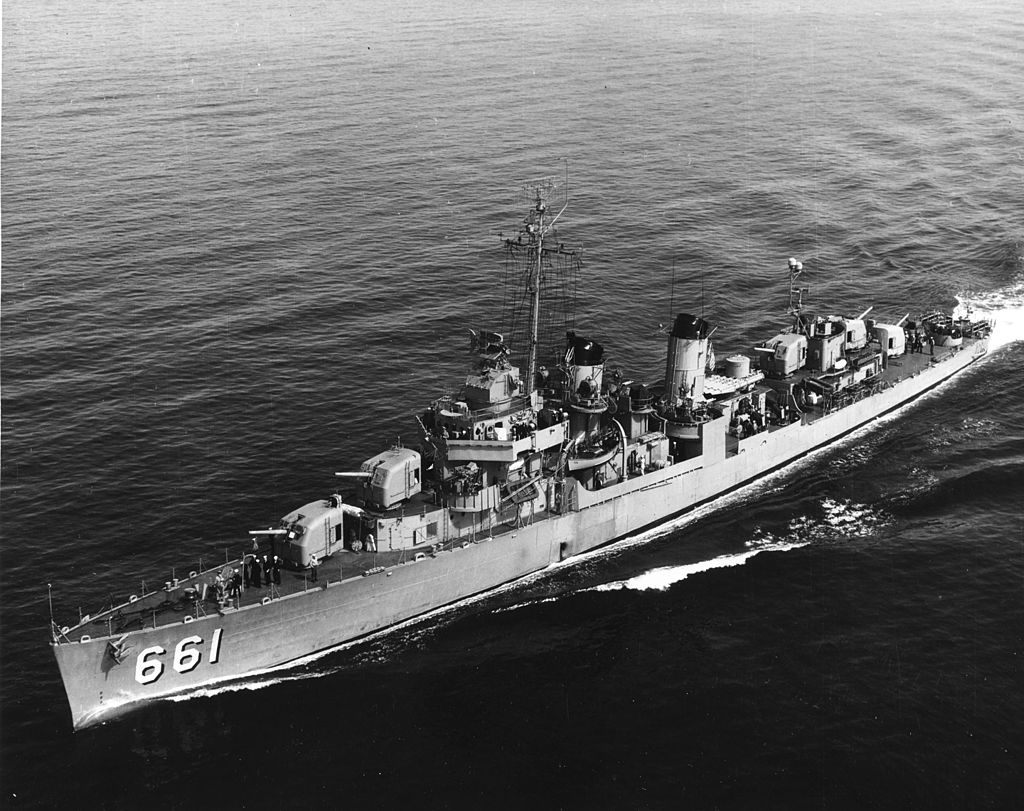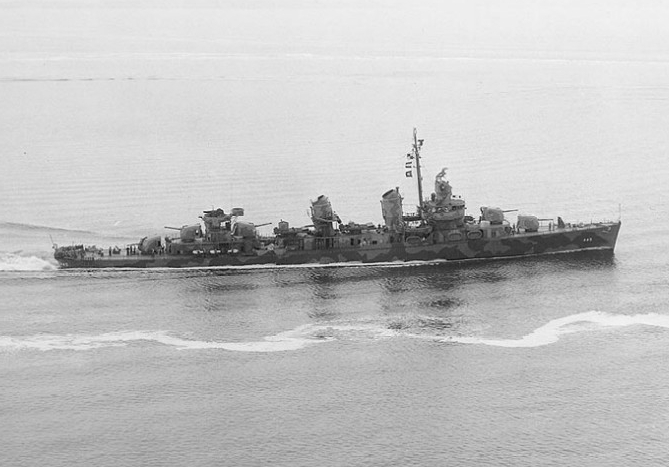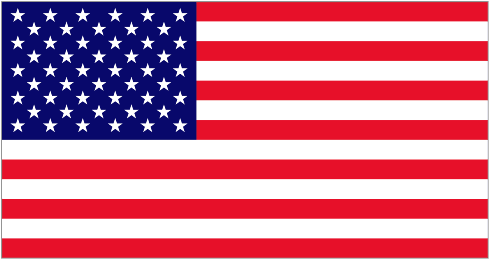Prototype: USS Kidd (DD-661), a Fletcher-class destroyer, was the first ship of the United States Navy to be named after Rear Admiral Isaac C. Kidd, who died on the bridge of his flagship USS Arizona during the 1941 Japanese attack on Pearl Harbor. Admiral Kidd was the first US flag officer to die during World War II, and the first American admiral ever to be killed in action.[3] A National Historic Landmark, she is now a museum ship, berthed on the Mississippi River in Baton Rouge, Louisiana.
Class History: The Fletcher class was a class of destroyers built by the United States during World War II. The class was designed in 1939, as a result of dissatisfaction with the earlier destroyer leader types of the Porter and Somers classes. Some went on to serve during the Korean War and into the Vietnam War.
The United States Navy commissioned 175 Fletcher-class destroyers between 1942 and 1944, more than any other destroyer class, and the Fletcher design was generally regarded as highly successful. Fletchers had a design speed of 38 knots, and an armament of five 5" guns in single mounts with 10 21" torpedoes in two quintuple centerline mounts.[ The Allen M. Sumner and Gearing classes were Fletcher derivatives.
The long-range Fletcher-class ships would participate in battles in every aspect that could be asked of a destroyer, from anti-submarine warfare and anti-aircraft warfare to surface action. They could cover the vast distances required by fleet actions in the Pacific. In fact, they served almost exclusively in the Pacific Theater of Operations during World War II, during which they accounted for 29 Imperial Japanese Navy submarines sunk. In a massive effort, the Fletcher-class ships were built by shipyards across the United States and, after World War II ended, 11 were sold to countries they had been built to fight against: Italy, Germany, and Japan, as well as other navies, where they would go on to have even longer, distinguished careers.
Three have been preserved as museum ships in the U.S., and one in Greece.
The United States Navy commissioned 175 Fletcher-class destroyers between 1942 and 1944, more than any other destroyer class, and the Fletcher design was generally regarded as highly successful. Fletchers had a design speed of 38 knots, and an armament of five 5" guns in single mounts with 10 21" torpedoes in two quintuple centerline mounts.[ The Allen M. Sumner and Gearing classes were Fletcher derivatives.
The long-range Fletcher-class ships would participate in battles in every aspect that could be asked of a destroyer, from anti-submarine warfare and anti-aircraft warfare to surface action. They could cover the vast distances required by fleet actions in the Pacific. In fact, they served almost exclusively in the Pacific Theater of Operations during World War II, during which they accounted for 29 Imperial Japanese Navy submarines sunk. In a massive effort, the Fletcher-class ships were built by shipyards across the United States and, after World War II ended, 11 were sold to countries they had been built to fight against: Italy, Germany, and Japan, as well as other navies, where they would go on to have even longer, distinguished careers.
Three have been preserved as museum ships in the U.S., and one in Greece.
Country: The U.S. is a country of 50 states covering a vast swath of North America, with Alaska in the northwest and Hawaii extending the nation’s presence into the Pacific Ocean. Major Atlantic Coast cities are New York, a global finance and culture center, and capital Washington, DC. Midwestern metropolis Chicago is known for influential architecture and on the west coast, Los Angeles' Hollywood is famed for filmmaking.
Item created by: Lethe on 2015-05-31 17:46:30. Last edited by gdm on 2019-06-03 08:35:35
If you see errors or missing data in this entry, please feel free to log in and edit it. Anyone with a Gmail account can log in instantly.
If you see errors or missing data in this entry, please feel free to log in and edit it. Anyone with a Gmail account can log in instantly.


